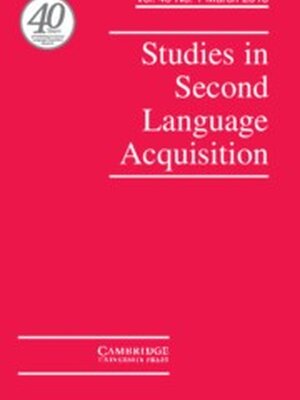
Armstrong, A., Bulkes, N. Z., & Tanner, D. (in press). Quantificational cues modulate the processing of English subject-verb agreement by native Chinese speakers: An ERP study. Studies in Second Language Acquisition.
Numerous studies have demonstrated that native Mandarin speakers have pervasive difficulties processing L2 English agreement morphology. However, less is known about the lexical and morphological cues that may modulate Mandarin speakers’ sensitivity to English number agreement. To investigate this, we examined subject-verb agreement processing in English by L1 Mandarin participants using event-related brain potentials (ERPs) and focused on the use of quantificational cues to noun number and their interaction with agreement morphology on the verb. Previous work in English monolinguals has shown that agreement violations elicited larger P600s when preceded by a plurally quantified subject noun phrase (NP) compared to an unquantified NP. In the present study, Mandarin speakers were tested on the same quantified and unquantified sentences (e.g., Most/The cookies taste/*tastes…) as in the prior work. Like the L1 English speakers, ERPs time-locked to the verb showed a reliable P600 in response to agreement violations. However, the P600 in Mandarin speakers was larger for ungrammatical verbs with unquantified subjects, a contrast with English monolinguals. First, these results demonstrate that L2 agreement violations can elicit qualitatively similar neural responses in L1 Mandarin speakers as in English monolinguals (P600 effects), a finding that is to our knowledge novel. Second, quantification modulated the P600 in the L2 speakers in a qualitatively different way than in natives. Overall, these findings suggest stronger reliance on lexical versus morphological cues to number in Mandarin speakers, and that this impacts anticipation of subsequent grammatical features.